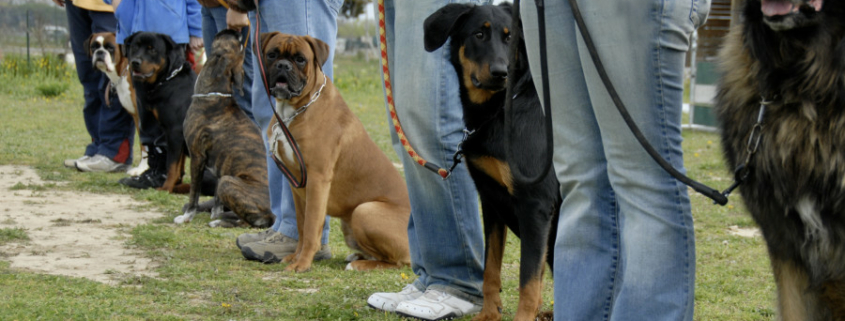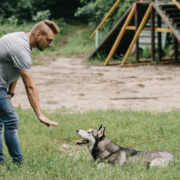Dog training can be a controversial topic among owners. Some claim they can handle the training themselves and write off poor behavior as their pet having “personality” or being “eccentric.” But the fact is, a quality dog trainer can make an enormous impact on your dog and your happiness.
Whether you’re in dire need of help controlling your pet or someone who wants to make sure your growing puppy picks up good habits, finding the right trainer can be challenging. Different methods are being taught, and the skill levels of trainers vary. And unfortunately, many frauds are more than happy to take your money and provide little to no help.
Below are some tips to help you find the right dog trainer.
Observe the Process
One of the easiest ways to accomplish this is asking to sit in and observe a training session. This lets you get a first-hand account of the process in the presence of other dogs and their owners. Some things to look for:
- Is the place clean? A red flag is seeing training take place in an unsanitary environment. Make sure the facility is cleaning up after dogs.
- Is the area secure? All training facilities should be safe for your dog. Make sure dogs can’t get out of gates or doors.
- Do the dogs seem happy? See how the dogs are reacting to the training. A good trainer should make the process fun for your pet. If the training is leading to petrified or aggressive behavior, maybe they aren’t right for you.
- Scan the equipment. Products like shock collars, choke chains, and other torturous training tools are not recommended. A good trainer will know how to treat your dog without these extreme options.
- Is the trainer violent? This is a no-brainer, but you’d be surprised how many people fall for the “alpha” dog bit. A trainer should never physically assault your pet. If you see this taking place, run for the hills, and maybe call your local animal officer.
Reviews and Word-of-Mouth
Asking friends and family about their dog trainer experiences is a great way to narrow down your options. Not only are you getting an opinion of someone you trust, but likely a chance to see how that dog has handled training.
Online reviews are a bit more perilous but still helpful. If you notice someone’s Yelp flooded with positive reviews, it’s a sign they’ve done some good. Make sure to look through the negative ones to see if any significant red flags pop up.
Run a Quick Background Check
This is especially important if you’ll be leaving your dog with the trainer on their own. A quick Google search can sometimes pull up any criminal history or fraud complaints.
Beyond that, I think experience is one of the most critical factors. For instance, Tony from Grumpy Puppy has been doing dog training in Huntington Beach and other parts of California for 20 years. You don’t last that long without knowing what you’re doing. And he used to host a radio show on dogs too. That’s someone who would easily pass the background check.
Some organizations require regular training and education like the APDT, IAABC, NADOI, and CCPDT. While being a member of an organization doesn’t make you a good trainer, it does mean that the person has taken this seriously and is not just a side gig.
Personal Attention
Another important aspect is how much attention your dog is going to be getting in training. While I’m a big fan of 1-on-1 training, that can be an expensive task. That leads to group lessons.
For a single trainer, a group lesson should not include more than six dogs. There won’t be enough personal attention and too many distractions for your pet. Always ask about the class size before signing up.
Use Your Instincts
Lastly, your instincts are going to do a lot of good here. While I mentioned several red flags to look for, you might spot others in the searching stage.
Is the trainer friendly to you? Are they open to answering questions you may have? These are little things that separate an excellent trainer from one looking to make a quick buck. Trust your instincts and find a dog trainer that not only you find acceptable, but your dog as well.









